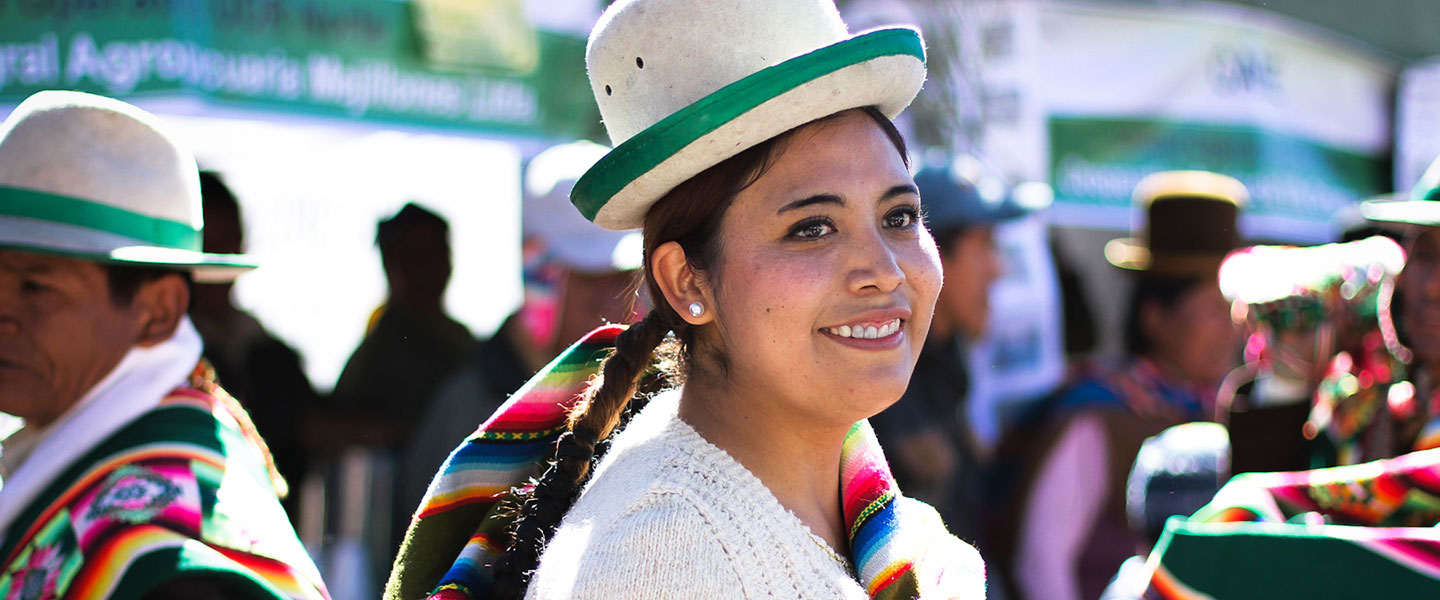One World Bank Group in Bolivia
Since July 2024, Bolivia has had a unified World Bank Group office that brings together the entire institution’s presence in the country, providing a single point of contact for access to all its products and services. The joint office includes the International Bank for Reconstruction and Development (IBRD), the International Development Association (IDA), the International Finance Corporation (IFC), and the Multilateral Investment Guarantee Agency (MIGA). This integrated presence enables the World Bank Group to work more effectively and cohesively in Bolivia.
Our current portfolio includes six investment projects totaling US$993 million, focused on transport, rural development and agriculture, urban development, energy, and water—sectors that are fundamental to Bolivia’s development priorities.
Country Partnership
The Country Partnership Framework (CPF) 2023–2026 outlines the World Bank Group’s strategy in Bolivia, focusing on three priorities: strengthening climate and economic resilience, improving incomes for vulnerable households, and expanding access to quality public services. It aligns with Bolivia’s national development plan and areas where the WBG offers high value through financing and technical assistance.
The CPF supports key sectors such as agriculture, urban development, disaster risk management, and renewable energy. To enhance resilience, it aims to improve climate risk management and macro-fiscal sustainability. To raise incomes, it promotes agricultural productivity, better market connectivity, and stronger employment skills.
To improve public services, the CPF focuses on enhancing service delivery and expanding access to electricity, especially in rural areas, to help Bolivia reach universal coverage by 2030.
Results
In Bolivia, the World Bank supports projects aimed at improving living conditions, rural productivity, resilience, and infrastructure across various sectors.
The Innovation Project for Resilient Food Systems (PAR III) will benefit more than 800 community associations and 1,900 rural producer organizations through investments and technological training to reduce food insecurity. The project will implement 205 productive infrastructure subprojects and promote the adoption of climate-adapted agricultural practices, with an emphasis on the participation of women producers.
In urban areas, the Urban Resilience Project supports La Paz and Santa Cruz de la Sierra in reducing vulnerabilities to climate risks, benefiting more than 167,000 residents through infrastructure resistant to landslides and floods, neighborhood and public space improvements, and the promotion of urban mobility.
The Road Corridor Connection Project in Santa Cruz, covering the San Ignacio de Velasco – San José de Chiquitos section (208 km), will improve a highway that connects Bolivia and Brazil, completes the Chiquitanía tourist circuit, and forms part of the East-West Bioceanic Corridor.
The Capacity Development Project in the Transport Sector supported the rehabilitation and maintenance of the Santa Cruz – Trinidad road (546 km), benefiting nearly 3 million inhabitants and strengthening the institutional capacity of the Bolivian Road Administration (ABC).
The Sustainable Electricity Access Improvement Project (IDTR III) will enable more than 141,000 people to gain access to new or improved electricity through the extension of networks, mini-grids, and solar systems, benefiting households, health centers, schools, and productive units.
The Resilient Water Management Project for Family and Community Irrigation will improve water resource management in 15 watersheds and 256 municipalities, benefiting around 30,000 rural families, with an emphasis on protecting water sources, optimizing irrigation systems, and building infrastructure.
The Climate Resilience Program for the Road Sector will strengthen climate risk management and the safety of bridges and roads, benefiting more than 165,000 residents and road users in several municipalities through institutional development and resilience subprojects against climate disasters.
Last Updated: Oct 10, 2025

